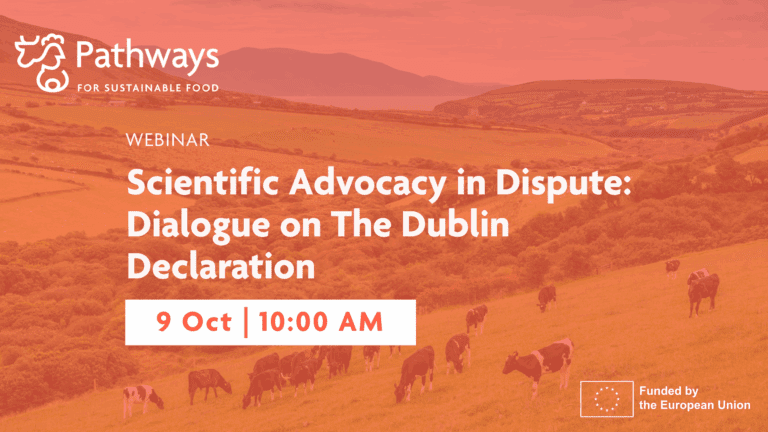9 October 2025 (10-11 CET)
Online
The Dublin Declaration of Scientists on the Societal Role of Livestock has sparked fierce debate in European and global agriculture, especially as the livestock industry and its critics vie to shape the future of food systems. Presented by leading experts from both sides, this webinar discussed the credibility and impact of the Declaration on science, policy, and the livestock sector.
Dr. Irina Herzon, whose published academic pieces (see 1 , 2) challenge the Declaration, argued that the Declaration undermines transparency and the integrity of scientific contributions to policy.
Prof. Frédéric Leroy, a co-author of the Declaration, will share the rationale behind the creation of the Declaration and defend the need for a more nuanced and inclusive debate on the role of livestock.
Key Themes:
- What the Dublin Declaration asserts about livestock, nutrition, and sustainability
- Concerns about selectivity and polarization
- The importance of open, multidisciplinary discussion
- Science as advocacy
Read a summary of the webinar here.
Watch the webinar recording below:
Speakers:

Professor of Food Science and (Bio)Technology at Vrije Universiteit Brussel; co-author of the Dublin Declaration

Researcher and Senior Lecturer at University of Helsinki; lead author of a high-profile critique of the Declaration’s evidence and advocacy
Moderated by:

